Imagine living in a community without basic access to fresh, wholesome food, or being unable to afford the groceries stocked in your local store.
Residents across North Carolina face these unfortunate circumstances, but the nonprofit Ripe for Revival is working to change that.
The Rocky Mount-based nonprofit converted a fleet of buses, trucks, and trailers into mobile markets that travel to communities — usually rural — struggling with food access. The markets currently serve 16 counties, including Wake, with plans to expand to 26 counties by the end of 2024, says Kara Cox, executive community director of Ripe for Revival.
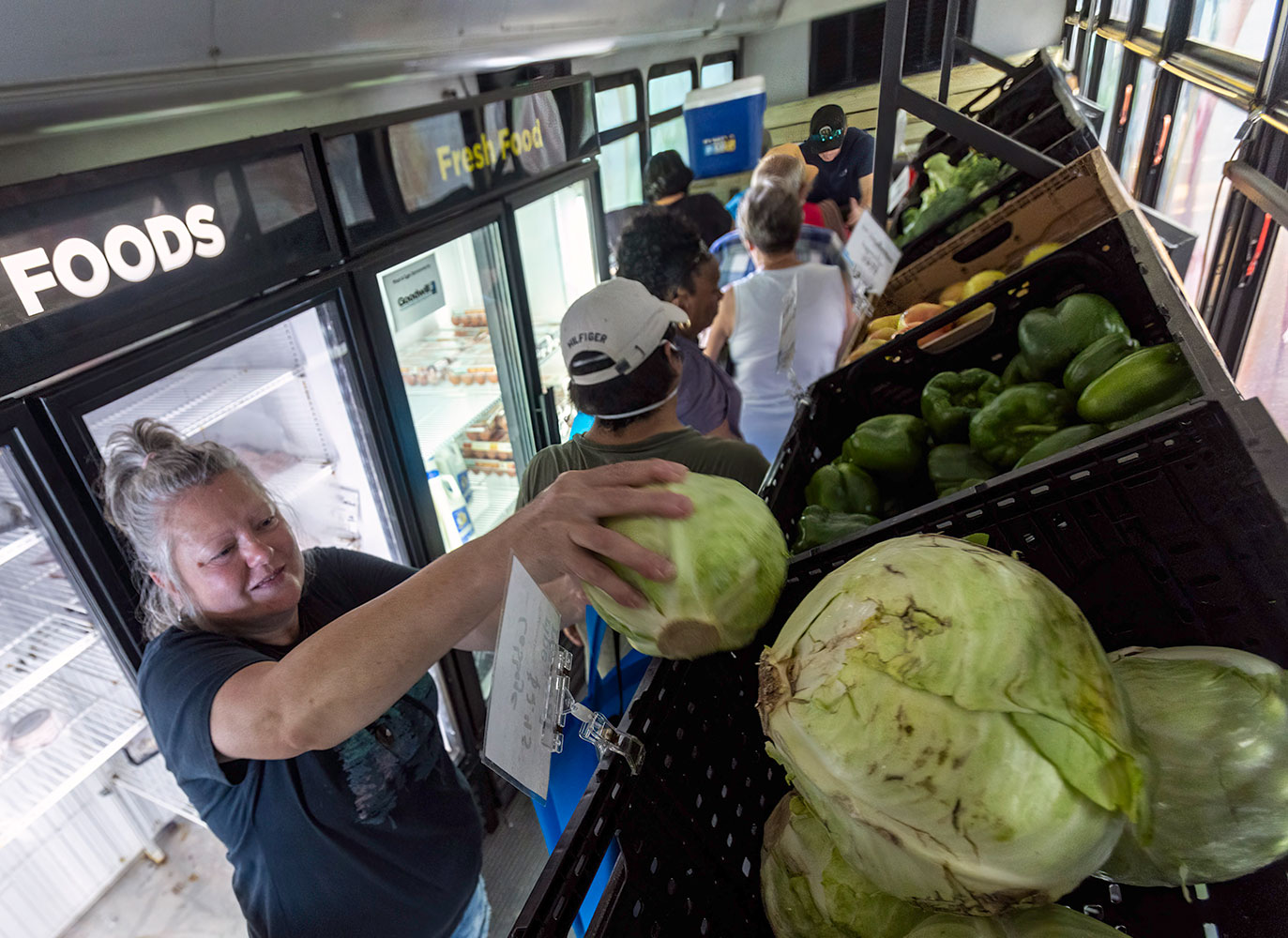
Melinda Rogers of Wake Forest is a regular shopper at Ripe for Revival. “It helps me because I’m raising grandsons, and I need a supplement,” Rogers says. She is currently unemployed and receives milk, eggs, and vegetables from the market.
“It’s a unique, pay-what-you-can market that allows everyone in the community to shop,” she says. “Everyone has the same choices, and everyone is treated the same, no matter what you choose to buy and what you decide to pay that day.”
The markets are open to all, not just those facing food insecurity. Suggested prices are about 30 percent below regular grocery store prices.
“This gives shoppers the opportunity to pay it forward, pay suggested retail, or pay what they can that day — and some days that is zero depending on their situation,” Cox says.
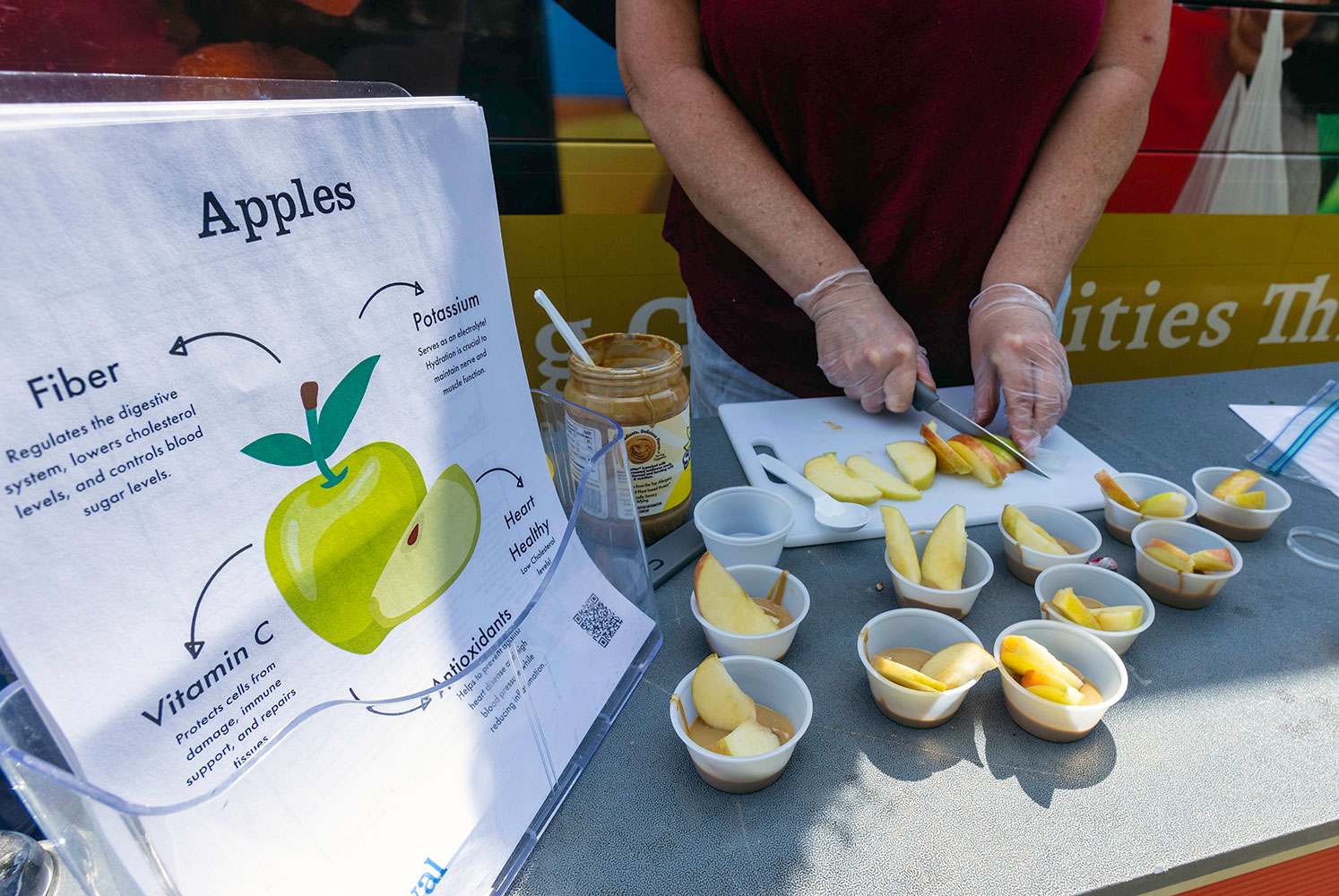
Volunteer Janet Chadwick slices apples at one of the demo stations that provide recipes and education about fresh produce.
Beyond providing access to groceries, Ripe for Revival focuses on education in the communities it serves. For example, each mobile unit has a cooking cart that can be rolled outside, Cox says. It’s used to teach people how to prepare the food they purchase while also providing nutrition education.
Ripe for Revival was born out of founder Will Kornegay’s for-profit business, Ripe Revival Market, which he launched during the covid pandemic. Seeing the profits lost by farmers when restaurants and other businesses who purchased their crops shut down during covid, Kornegay created a home delivery service that served more than 500 homes within its first week.
During that time, he also developed relationships with nonprofits who were distributing food.
“That opened my eyes to the need,” Kornegay says.
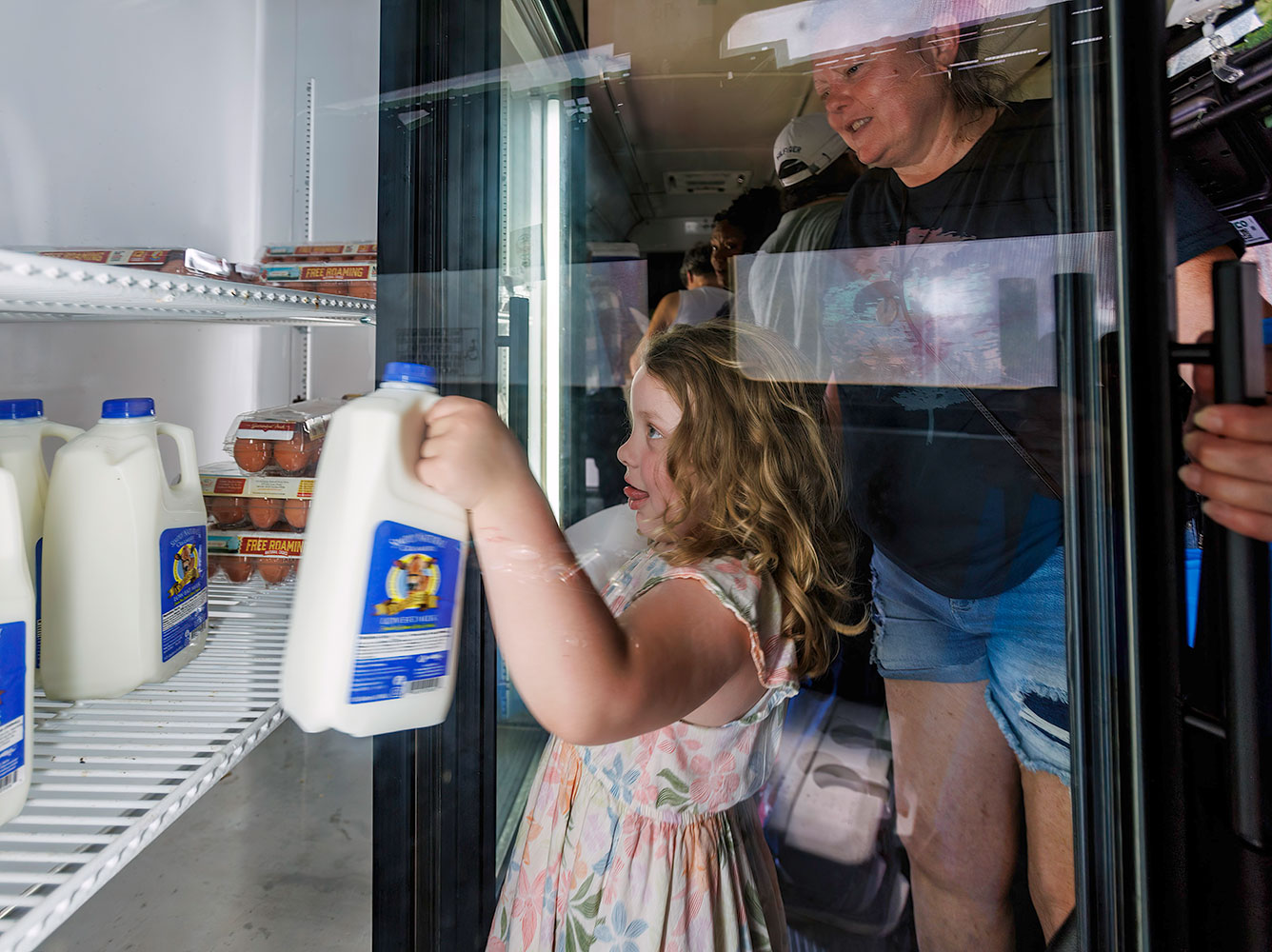
Wake Forest resident Melinda Rogers shops with her 4-year-old granddaughter, Karly, selecting apple wedges and other fresh produce.
He saw a way to help both farmers — giving them another outlet to distribute their crops while minimizing food waste — and individuals facing food insecurity.
Many people may not know that 40 percent of farm crops are left in the field each year, Kornegay says. Crop yields often need to look a certain way to make it to grocery store shelves. A malformed butternut squash might be completely edible, for example, but not acceptable by grocery store standards. Ripe for Revival purchases that type of produce to put in the hands of the one in eight North Carolinians who Kornegay says are food insecure.
“It’s a paradox; there’s so much food going to waste in the field, and then people are starving,” he says. “Our model works.”
In addition to produce, the mobile markets offer dairy, meats, and other products. They try as much as possible to source all products from North Carolina.
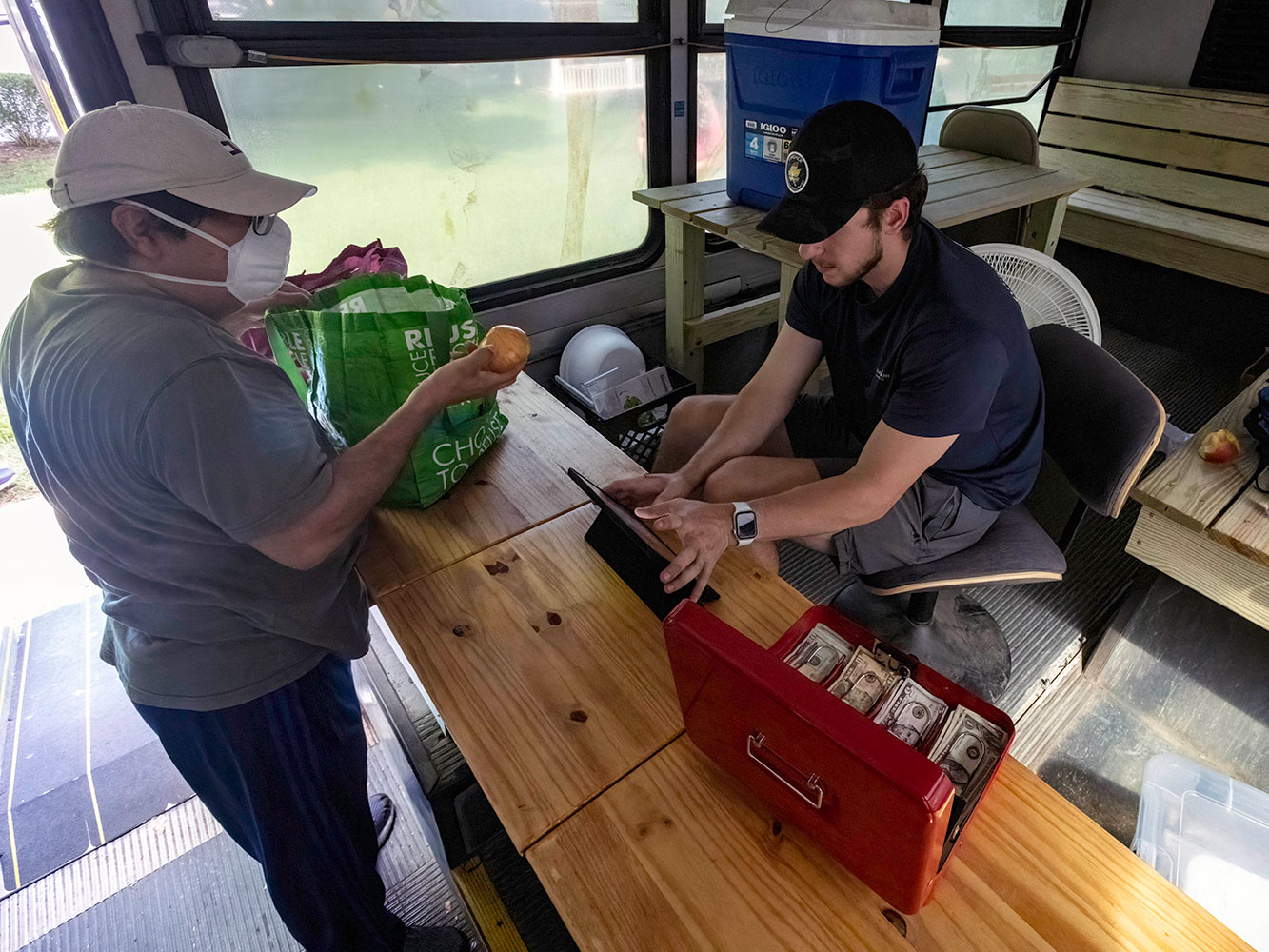
It’s not a food bank, Cox points out, but rather a hand up. People’s circumstances change, and she notes that one week someone may need help to afford their groceries, then later be able to pay it forward.
“Maybe you need the hand up, and next time you’re doing the handout,” she says.
Melinda Rogers of Wake Forest shops a Ripe for Revival market when it visits the Wake County Northern Regional Center twice a month. She is currently unemployed and says she is grateful that she can get milk, eggs, and fresh vegetables for her family.
“It helps me because I’m raising two grandsons and I need a food supplement,” Rogers says. “The program is open to the whole community. It helps provide food for people who might not want to admit what they’re going there for.”
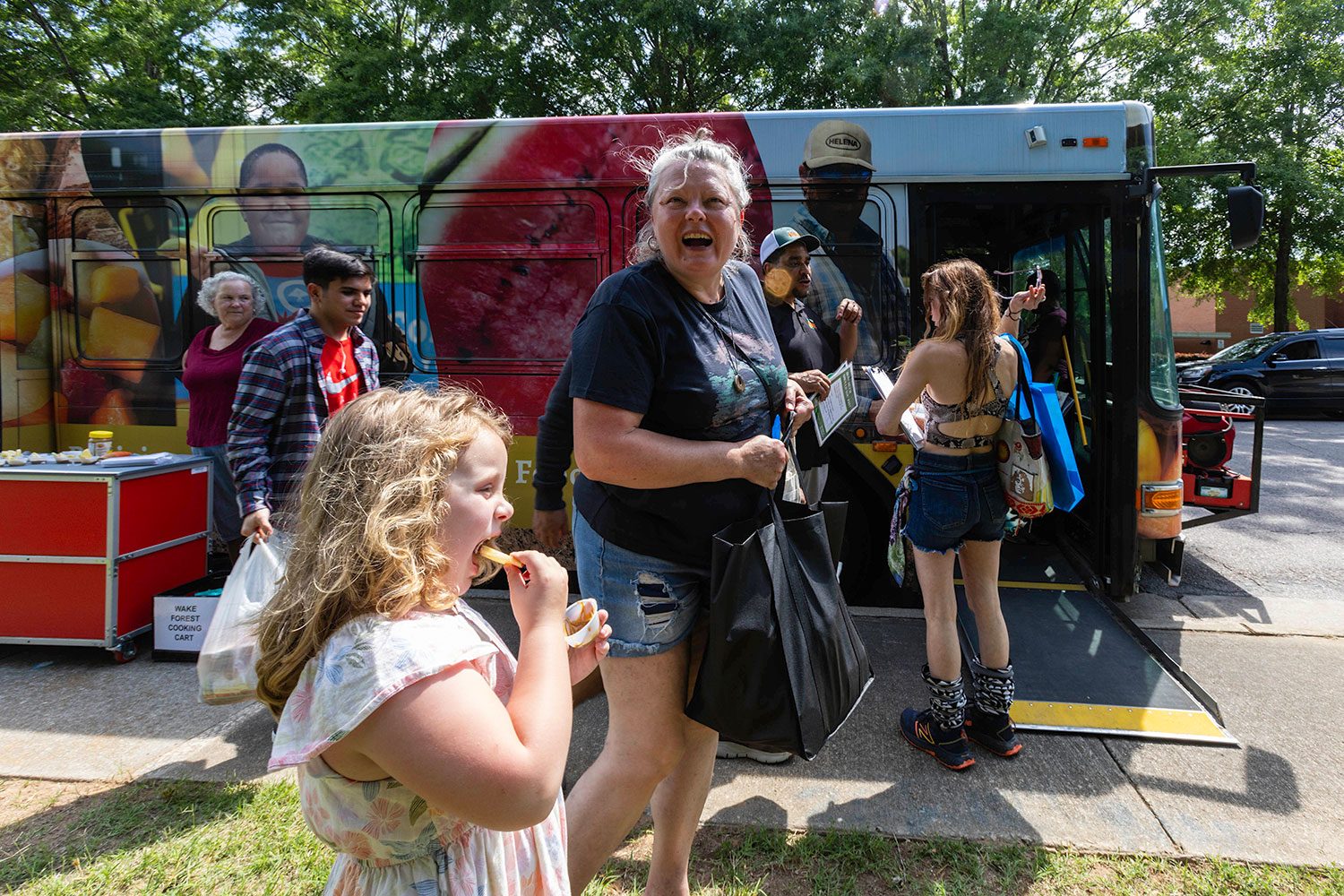
Ripe Revival Market donates a portion of its profits to Ripe for Revival. The nonprofit has formed other partnerships and receives private donations as well. A partnership with Coastal Credit Union will help Ripe for Revival expand to serve more counties this summer, Cox says.
“Operating a for-profit alongside a nonprofit is hard, and it requires extra attention to detail,” Kornegay says. “But I think this model will change the agriculture industry and change statistics on food insecurity and education.”
Ripe for Revival is always seeking business and private partnerships to support the nonprofit through donations, volunteering, and other avenues. Find more details at riperevivalmarket.com/pages/ripe-for-revival or by emailing inquiries to info@ripeforrevival.com.
- Abundant Brunch Flavors Await
- Expanding by The Yard
- School’s In!
- Restaurant Profile: Herons
- Erica Chats: The Triangle Ice Cream Tour
- Restaurant Profile: SAAP Laotian Restaurant
- Small Business Spotlight: Local 919
- Celebrated Spirits: Queen’s Necklace
- Celebrated Spirits: Color Correction
- Pay It Forward: Ripe for Revival
- Garden Adventurer: Grow a Joe




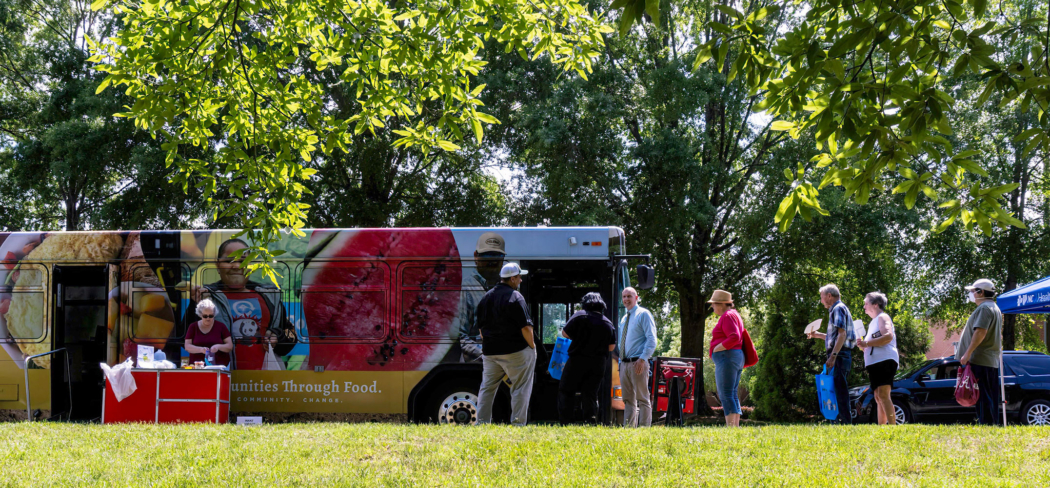

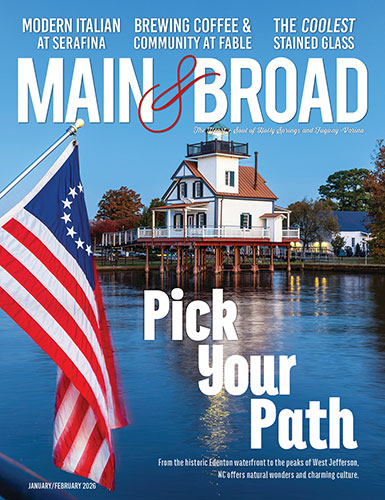

What a blessing for the people you serve!